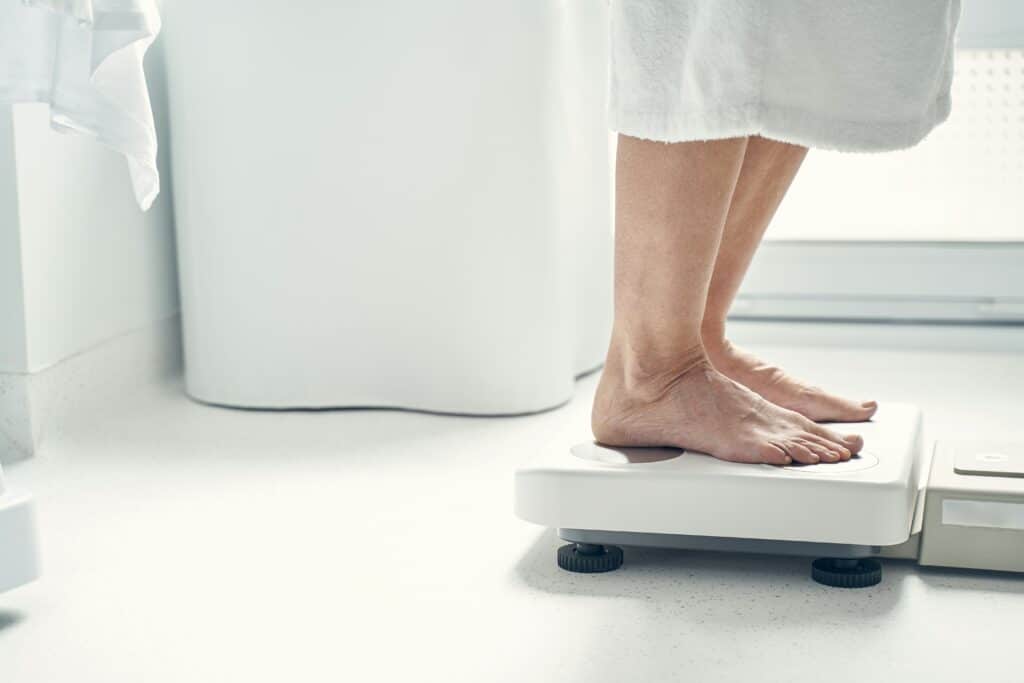Does Qulipta Affect Weight? Understanding Its Impact on Appetite and Metabolism
Does Qulipta Affect Weight? Understanding Its Impact on Appetite and Metabolism
- Todd P
Qulipta (atogepant) is a prescription medication used to prevent episodic migraines in adults. As more patients begin taking it, questions about its potential side effects, including whether it affects weight, have become common. Unlike some migraine medications known for causing weight gain or loss, Qulipta’s impact on metabolism and appetite is less well understood.
This article explores whether Qulipta contributes to weight changes, the possible reasons behind those effects, and what patients can do to manage their weight while on the medication.
How Qulipta Works
Qulipta belongs to a class of medications known as CGRP (calcitonin gene-related peptide) receptor antagonists. It helps prevent migraines by blocking CGRP, a protein involved in migraine attacks. By reducing the frequency and severity of migraines, Qulipta can improve quality of life for those who suffer from frequent headaches.
Unlike some older migraine medications, Qulipta does not affect serotonin levels, which are sometimes linked to appetite regulation. This makes it different from triptans and other migraine treatments that can influence hunger cues and metabolism.
Does Qulipta Cause Weight Gain?
Weight gain is not a commonly reported side effect of Qulipta, but some patients may notice changes in their appetite or weight while taking the medication. There are a few possible explanations for why weight gain might occur:
Migraine Relief May Lead to Increased Appetite
Some people experience reduced appetite or nausea during migraines. By preventing migraines, Qulipta may allow appetite to return to normal, which could lead to an increase in food intake.Less Physical Discomfort and More Regular Eating Habits
Migraine sufferers often avoid eating due to nausea, stomach pain, or food triggers. With fewer migraines, people may find themselves eating more regularly, which could contribute to slight weight gain over time.Individual Reactions to Medication
While clinical trials have not shown a strong link between Qulipta and weight gain, every patient reacts differently to medications. Some may experience mild fluid retention, changes in digestion, or hormonal shifts that could lead to slight weight changes.
Can Qulipta Cause Weight Loss?
Weight loss is also not a well-documented side effect of Qulipta, but some users have reported losing weight while on the medication. There are several possible explanations:
Gastrointestinal Side Effects
Some patients experience nausea, loss of appetite, or mild digestive discomfort when they start taking Qulipta. If these symptoms persist, they could lead to reduced food intake and gradual weight loss.Changes in Eating Patterns
Some migraine sufferers have specific food cravings, particularly for carbohydrate-rich foods, when experiencing headaches. With fewer migraines, those cravings may decrease, leading to lower overall calorie intake.Metabolic Variability
While Qulipta does not directly speed up metabolism, changes in energy levels or reduced stress from fewer migraines could lead to lifestyle adjustments that promote weight loss.
How to Manage Weight While Taking Qulipta
For patients who notice changes in weight while on Qulipta, there are steps that can help maintain a healthy balance:
Monitor Eating Habits
Keeping a food journal can help track any unexpected changes in appetite or portion sizes. If you notice an increase or decrease in food intake, adjustments can be made to maintain a healthy diet.Stay Physically Active
Regular physical activity helps maintain weight stability. If migraines previously interfered with exercise, fewer headaches may allow for more movement and better overall health.Adjust Dietary Choices If Needed
Eating balanced meals with enough protein, fiber, and healthy fats can help regulate appetite. If nausea or digestive discomfort occurs, adjusting meal timing or portion sizes may help.Consult a Healthcare Provider
If weight gain or loss becomes concerning, speaking with a doctor or dietitian can provide guidance on how to manage it while continuing migraine treatment.
What Clinical Studies Say About Qulipta and Weight Changes
Clinical trials for Qulipta have not identified significant weight gain or weight loss as a common side effect. The most frequently reported side effects include nausea, fatigue, and constipation, but changes in body weight were not a notable trend.
That being said, since weight-related effects can vary between individuals, some people may experience mild changes in weight due to indirect factors like appetite shifts or changes in physical activity.
Conclusion
Qulipta is not known to cause major weight changes, but some patients may experience fluctuations due to changes in appetite, eating habits, or migraine frequency. Since migraine prevention can impact daily routines and food intake, slight weight gain or loss may occur in some individuals.
For those concerned about weight management while on Qulipta, monitoring dietary habits, staying active, and discussing concerns with a healthcare provider can help maintain a healthy balance. If weight-related side effects become bothersome, adjustments to diet or lifestyle may provide solutions without interrupting migraine treatment.
Reference:


